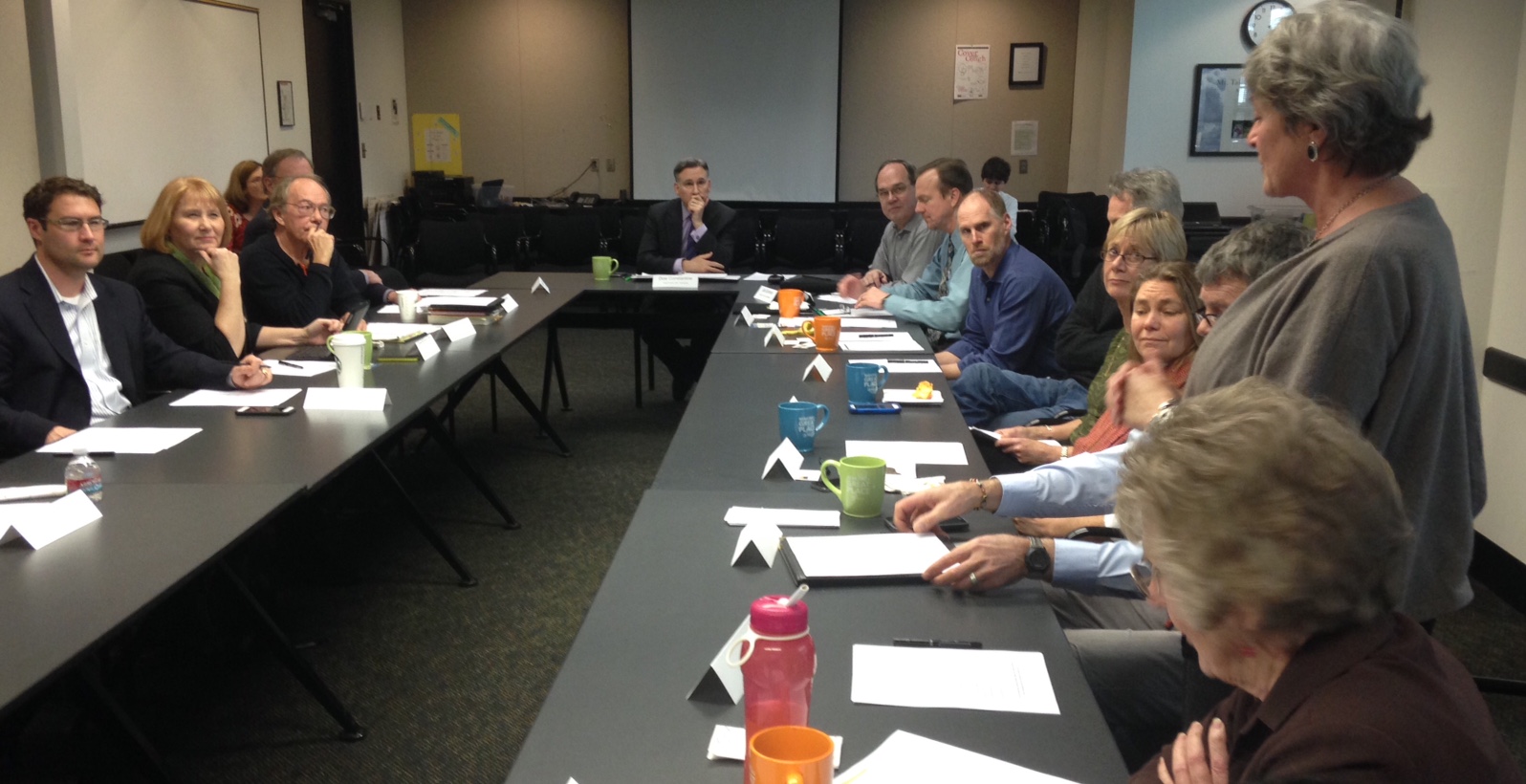Elected leaders gather in Portland as surge in oil-train traffic increases risk to public safety
Summary
The third gathering of the Safe Energy Leadership Alliance—elected leaders representing cities and counties across the Pacific Northwest—comes one month after a report by the U.S. Department of Transportation predicted a significant increase in hazardous oil-train derailments.
Story

Learn more about the Safe Energy Leadership Alliance.
King County Executive Dow Constantine—representing the Seattle metropolitan region—was joined by elected leaders from the Portland and Vancouver area for the third gathering of the Safe Energy Leadership Alliance since he first convened the group last summer. The two-hour meeting included a presentation on the increasing risk of oil transport and coal export along the Columbia River Gorge.
“The startling increase in highly flammable crude oil coming into the Pacific Northwest creates a new and significant risk to our people, our economy, our traffic, and our environment,” said Executive Constantine. “These threats span rivers and mountain ranges and impact cities, counties, and tribes of all sizes. To protect them, we need a unified front.”
The Safe Energy Leadership Alliance includes 150 locally elected leaders from Oregon, Washington, Idaho, Montana, and British Columbia. The group's mission is to better understand the potential safety and economic impacts from oil transport and coal export and to speak with a unified voice to federal regulatory agencies.
Federal study predicts $4 billion in damages and greater risk to public safety
On Feb. 5, the U.S. Department of Transportation submitted recommendations to The White House that would require oil companies to use stronger tank cars and make other safety improvements. The study predicts that trains hauling crude oil or ethanol will detail an average of 10 times each year over the next two decades, causing more than $4 billion in damages and increasing the risk to public safety in densely populated areas.
Nine days after the report was submitted, a 100-car train hauling oil derailed and caught fire in Ontario, Canada. Less than 48 hours later, a 109-car oil train derailed and caught fire West Virginia, leaking oil into a river tributary and burning a house to its foundation. Both fires burned for nearly a week.
In addition to the increased risk to public safety, the surge in oil-train traffic makes it more difficult for local manufacturers and farmers to get their products to market. It also means less room on rails for passenger trains, more traffic at railroad crossings, and more delays for emergency responders.
A report by the Washington Department of Ecology predicts that the volume of oil crossing the state by rail could triple by 2020 to nearly 9 billion gallons each year. Most of the oil is coming in outdated train cars that were not designed to carry the more-volatile crude oil that is coming out of the Bakken fields in North Dakota.
If all the proposed oil-by-rail projects across Washington are built, more crude oil would be transported through Washington and Oregon than through the proposed Keystone XL pipeline. If the proposed Tesoro Savage Terminal is built in Vancouver, Wash., it would be the largest oil-by-rail facility in the United States.
FOR MORE INFORMATION, CONTACT:
Chad Lewis, Executive Office, 206-263-1250

 Translate
Translate

